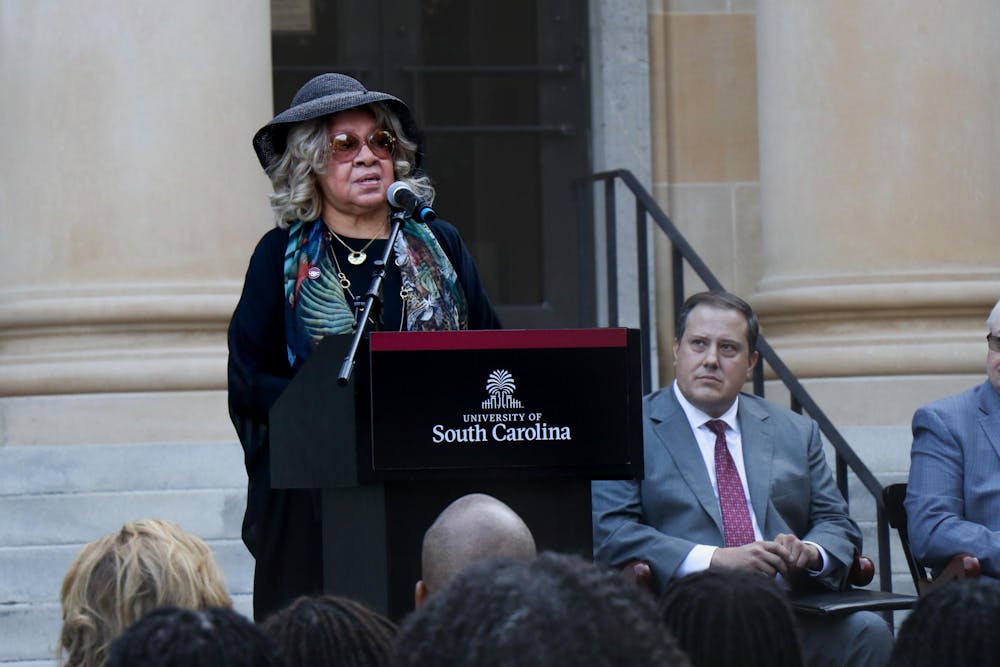USC honored the 60th anniversary of desegregation at McKissick Museum on Monday with a ceremony and groundbreaking for a new monument of the first three Black students admitted to the university.
The statue, sculpted by the internationally-acclaimed Basil Watson, will be located on the horseshoe in front of McKissick Museum. It is scheduled to be unveiled in early 2024.
The commemoration was in honor of Robert G. Anderson, James L. Solomon Jr. and Henrie Monteith Treadwell — the first three Black students who enrolled in the university in 1963. Both Treadwell and family members of Anderson and Solomon Jr. spoke at the event. University administrators and family members speaking on behalf of the three students all participated in breaking ground for the monument.
“(James L. Solomon Jr.) did not consider himself a hero," said his son Carl Solomon. "He did think a hero was among them, and that was Dr. Treadwell. See, my father said he was a grown man applying to graduate school, and a young lady brought a lawsuit to integrate the university that allowed he and others to enter.”
Treadwell, who also spoke at the event, was the woman who filed the lawsuit against the university that ultimately led to its desegregation.
"We've only just begun, more is needed," Treadwell said. "More will happen. We think sometimes about those who are still not fully accepting of the changes that are occurring and will continue to occur. And the monument is a catalyst."
While the event honored how far USC has come, the university is still making strides to become more inclusive. For example, USC has recently committed to the admittance of the top 10% of all South Carolina high school graduating classes to promote greater geographical diversity.
“I think that's what we must continue to do, is continue to provide greater access to higher education for students from across the state who haven't historically had the opportunity.” said Rex Tolliver, the vice president for student affairs and academic support. “They may not necessarily be students of color, but students from rural backgrounds, students from lower socio-economic backgrounds, and using what happened more as a testament that, when you provide access to more students, the whole of South Carolina is a better place.”
USC officially desegregated on Sept. 11, 1963, which was when the first three Black students registered for classes.
“I can’t really say why it didn’t happen sooner, but I don't want to take away from the significance of now," Tolliver said. "Now was the time because we had all the right people in the right places, doing the right thing."
Treadwell said she was thankful for the administration and all those who supported desegregation efforts in 1963.
“We cannot lose track of the fact that we entered this institution on a very peaceful day, which meant that many decided, 'Let the time come,'" Treadwell said. "For those who were not ready then, and are not ready now, I have one message: Those days of old, those days are gone and will never come again."

